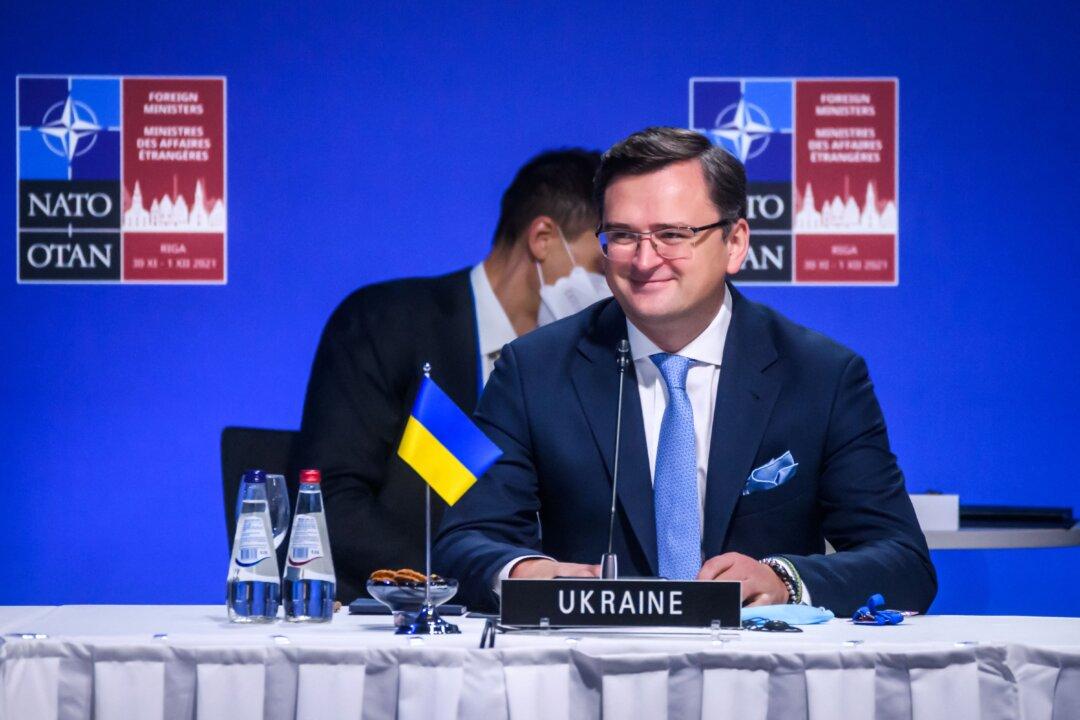RIGA—Ukraine urged NATO on Wednesday to prepare economic sanctions on Russia to deter a possible invasion by tens of thousands of Russian troops concentrated within reach of its border.
Ukrainian Foreign Minister Dmytro Kuleba said he would make the request to NATO foreign ministers meeting for the second day in Latvia to discuss how to respond to the Russian build-up and avert potentially the most dangerous crisis in relations with Moscow since the Cold War.





